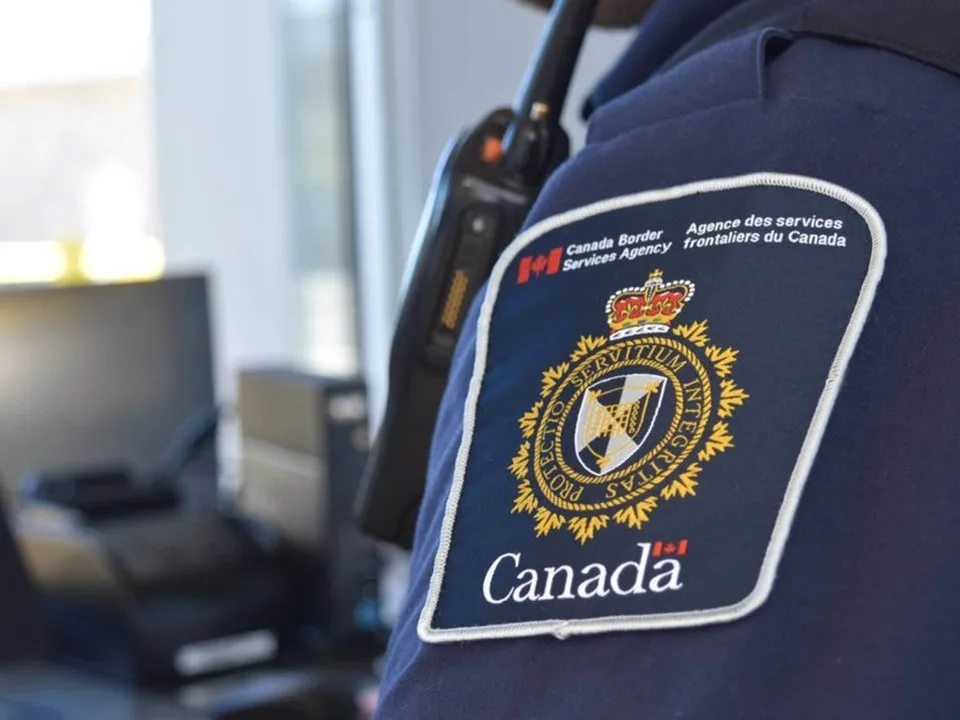As the summer travel season kicks off, Canadians and visitors may face long waits at the border, potentially disrupting the economy. The cause? A looming strike by workers at the Canada Border Services Agency (CBSA), which could start as early as Thursday.
What’s Happening?
More than 9,000 Public Service Alliance of Canada (PSAC) members working for the CBSA, including border guards, have secured a strike mandate. Mediation begins on June 3, and the union could strike as of June 6. A similar strike three years ago almost halted commercial cross-border traffic, causing significant delays at airports and borders nationwide.
While the Treasury Board states that 90% of frontline border officers are designated essential and cannot stop working during a strike, the union plans to use work-to-rule tactics. This means employees will strictly follow their job descriptions, potentially slowing border crossings significantly.
Ian Lee, an associate professor at Carleton University’s School of Business, explains that strict adherence to job duties could lengthen border crossing times, impacting not only tourists but also the economy, given the $2.5 billion in goods crossing the border daily. The Treasury Board insists that essential service employees must provide uninterrupted services and will discipline workers engaging in illegal job action. However, Lee points out that border workers have broad discretion in their duties, making it challenging to argue they are breaking the law by exercising their full authority.
What Do CBSA Employees Want?
Mark Weber, national president of the Customs and Immigration Union (part of PSAC), states that while work-to-rule could be disruptive, the union isn’t there yet. Members seek pay parity with other law enforcement agencies, better pension benefits, protections against heavy-handed discipline, and the filling of thousands of officer vacancies with permanent employees, not contractors.
Another concern is technology replacing jobs traditionally done by officers, such as self-serve kiosks at Canadian airports. Weber criticizes this as a security risk, equating it to “waiting for smugglers to self-declare with no officers present.”
Work-from-Home Arrangements
The strike also ties into the broader public service unions’ battle over the new in-office mandate requiring federal employees to work at least three days a week starting September. PSAC had previously indicated that this mandate could lead to a “summer of discontent,” potentially including the CBSA strike. The union wants telework options enshrined in the collective agreement, citing broken promises by the government regarding work-from-home consultations.
Likelihood of a Strike
Treasury Board spokesperson Martin Potvin remains optimistic about reaching an agreement, stating the commitment to good faith bargaining. Weber emphasizes that the union is ready to negotiate a fair contract, and it’s up to the government to present one that avoids a strike.
Stephanie Ross, an associate professor of labour studies at McMaster University, notes the strong 96% vote in favor of strike action, indicating deep-seated issues. Negotiations have been ongoing without a collective agreement for two years, leading to frustration over wages falling behind.
Ross suggests both sides are waiting to see who will blink first. The government may doubt the union’s ability to mobilize a disruptive work-to-rule, but the union’s unity and organization could prove them wrong.
This report by The Canadian Press was first published on June 2, 2024.
#CBSAstrike #BorderTraffic #CanadianEconomy #PublicServiceAlliance #PSAC #WorkToRule #BorderDelays #CanadaUSBorder #LaborNegotiations #WorkFromHome #UnionStrike #EssentialServices #LaborDispute #CrossBorderTrade






